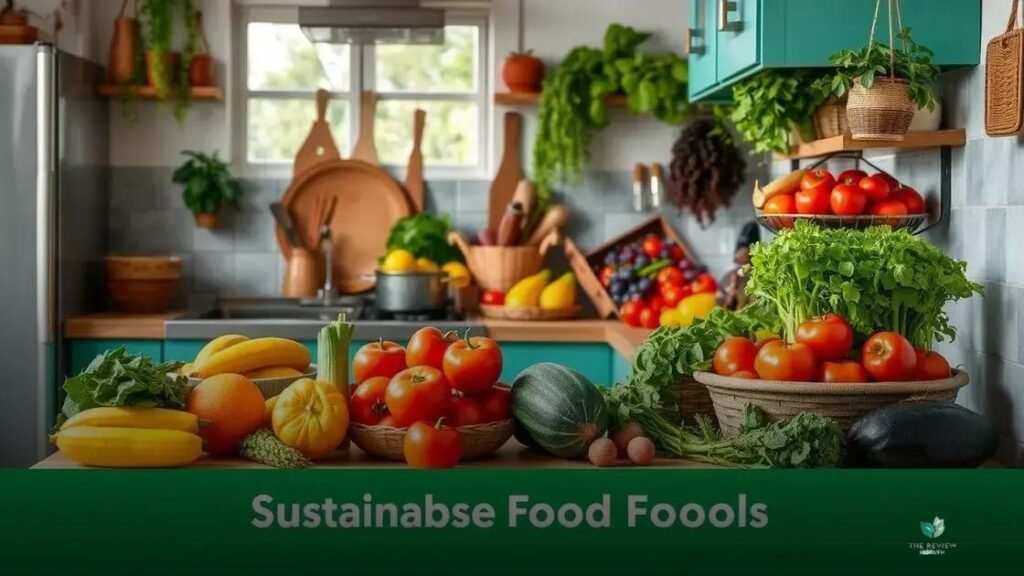Food waste reduction benefits the environment, your wallet, and even your diet by conserving resources, saving money, and creating opportunities for innovative and delicious meals through upcycling.
Food waste reduction benefits are more significant than you might think. Reducing waste not only helps the planet but also enhances your meals. Have you ever wondered how simple changes can lead to delicious, waste-free dining?
Understanding the impact of food waste

Understanding the impact of food waste is crucial to appreciating the full benefits of its reduction. Food waste isn’t just about throwing away uneaten leftovers. It represents a significant loss of resources, including the water, energy, and land used to produce, process, and transport food.
Environmental Impact
When food decomposes in landfills, it produces methane, a potent greenhouse gas far more damaging than carbon dioxide. This contributes significantly to climate change. Furthermore, wasted food also represents a squandering of precious natural resources like water and arable land, both of which are increasingly strained globally.
Economic Impact
The economic consequences of food waste are substantial. Businesses and consumers alike lose money on discarded food, impacting bottom lines and household budgets. This waste also strains the resources of waste management systems, adding to municipal costs.
Social Impact
Food waste has a significant social impact, especially considering the number of people experiencing food insecurity worldwide. While a portion of wasted food is recovered and redistributed, a vast amount ends up in landfills, representing a missed opportunity to address hunger and malnutrition.
Practical tips for reducing food waste

Practical tips for reducing food waste can be easily incorporated into your daily routine. Small changes can make a big difference, both for your wallet and the environment.
Smart Shopping and Storage
Plan your meals ahead of time and create a shopping list to avoid impulse purchases. Store food correctly to maximize its shelf life. For example, understand the ideal storage conditions for fruits and vegetables, and use airtight containers to keep leftovers fresh.
Proper Food Preparation
Prepare only the amount of food you need. This requires accurately estimating portions and resisting the urge to over-serve. Use food scraps creatively in stocks, broths, or compost. Don’t be afraid to get creative with “ugly” produce – it often tastes just as good.
Creative Leftover Use
Transform leftovers into new meals. Yesterday’s roast chicken can become delicious chicken tacos, and stale bread can be made into croutons or bread pudding. Freezing leftovers is a great way to extend their lifespan and reduce waste. Label and date your frozen items for easy identification.
The role of upcycled ingredients in your diet

The role of upcycled ingredients in your diet is an exciting and innovative aspect of food waste reduction. Upcycling involves transforming food byproducts, which might otherwise be discarded, into new, edible products. This not only minimizes waste but also often adds unique flavors and nutritional value to your meals.
Discovering Upcycled Foods
Many upcycled ingredients are already available in stores. Look for products made from things like spent coffee grounds (used in coffee flour), brewers’ spent grain (incorporated into baked goods), or fruit pulp from juicing (used in fruit leathers). These innovative products offer delicious and sustainable alternatives.
Upcycling at Home
You can easily incorporate upcycling into your own cooking. Save vegetable scraps to make flavorful stocks and broths. Use fruit peels to infuse flavor into water or create candied citrus peels. Turn stale bread into breadcrumbs for coating or croutons for salads. The possibilities are endless!
Health and Environmental Advantages
Upcycled ingredients often retain valuable nutrients and fiber from the original food source. By reducing food waste, you’re also lessening the environmental impact of food production and disposal. Upcycling is a win-win for your health and the planet.
Reducing food waste is more than just a trend; it’s a vital step towards a more sustainable and food-secure future. By understanding the impact of food waste, adopting practical reduction strategies, and exploring the innovative world of upcycled ingredients, we can all contribute to a healthier planet and enjoy more delicious, resourceful meals. Start small, be creative, and savor the numerous benefits of reducing food waste.
FAQ: Reducing Food Waste
What are the biggest contributors to food waste at home?
Overbuying, improper storage, and forgetting about leftovers are common culprits of household food waste.
How can I store food properly to prevent spoilage?
Understanding the correct storage methods for different foods is key. Use airtight containers, refrigerate promptly, and familiarize yourself with optimal temperature and humidity levels for various produce.
What are some simple ways to use food scraps?
Vegetable scraps can be used to make delicious stocks and broths. Fruit peels can be candied or used to infuse water. Stale bread can be turned into breadcrumbs or croutons.
What is upcycling, and how does it relate to food waste?
Upcycling transforms food byproducts that would normally be discarded into new, edible products, minimizing waste and often creating unique and nutritious food options.
Where can I find upcycled food products?
Look for products made from ingredients like spent coffee grounds, brewers’ spent grain, or fruit pulp. Many innovative upcycled products are becoming increasingly available in stores.
How does reducing food waste benefit the environment?
Reducing food waste lowers greenhouse gas emissions from landfills, conserves precious natural resources like water and land, and reduces the strain on waste management systems.

Sarah Thompson is a passionate advocate for healthy living and mindful lifestyle choices. With a background in nutrition science and years of experience as a wellness coach, Sarah dedicates her time to exploring the latest trends, research, and products that promote physical, mental, and emotional well-being.
As the lead writer for The Review Health , Sarah combines her expertise with a genuine love for helping others make informed decisions about their health. Her articles are designed to inspire and educate, offering practical tips, honest reviews, and science-backed insights to support readers on their journey to a healthier, happier life.
When she’s not writing or researching, Sarah enjoys yoga, experimenting with plant-based recipes, and spending time outdoors with her family.



